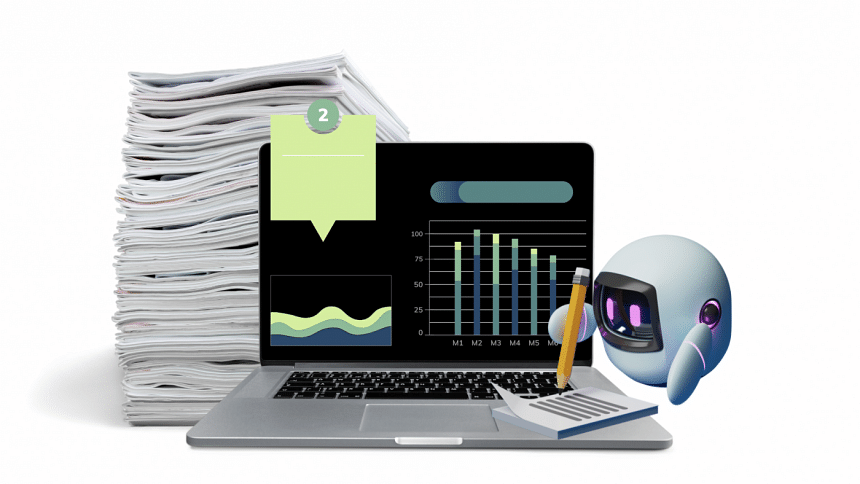Why university students should consider using AI in research

Being the hot topic that it is, Artificial intelligence (AI) has slowly started to seep into our lives. However, AI today seems to be less of a scare than what it ostensibly was in the initial days of ChatGPT. Today, in academic research, students and scientists of varying backgrounds make use of AI tools to aid them in processing large volumes of data.
And this isn't a bad thing. After all, if a tool can help you work faster, should its use not be encouraged? It must be used carefully, of course, because not all AI tools will function in the same way, and the guarantee that the data provided will always be trustworthy is also not there.
And while some may say that using AI is ethically dubious, popular research journals have already started conversations on how to use it, not whether it should be used, since it's clear that using AI is becoming more and more commonplace. Clearly, as a tool, there are effective ways to use it even in the world of academic research. For undergraduate students who might still not have sunk both feet into the world of academia, the likes of ChatGPT and all of its AI siblings, along with many other niche AI tools, can be an excellent way to delve into this world.
Labib Daiyan, a final-year student at Ritsumeikan Asia Pacific University, shares his experience regarding this exact issue.
"I'm currently working on my undergraduate thesis on Culture, Society, and Media. At first, I was confused about how to start doing my research, what would be the approach, and which methodologies I ought to go for. Using an AI tool like ChatGPT, I got a wide range of detailed starter tips that outlined various resources to study and methodologies to follow. This was a huge boost in my workflow and aided in clearing my confusion and panic."
One important takeaway here is that it does not matter which major you belong to. As a student looking for some guidance, tools like ChatGPT can offer a lot of help. When it comes to looking for guidance in structuring your research paper or formulating new hypotheses, language models like ChatGPT or Google Bard can play a crucial role.
Now, if a student were to delve deeper into a particular topic, how well would a language model like ChatGPT fare?
Aanushka Tupur, a final-year student studying Bioinformatics and Biotechnology at Asian University for Women (AUW) says, "I use ChatGPT to help build simple code or find information from the internet that you can't easily locate. It's also very helpful when it comes to understanding the methodology used in other research papers."
With that in mind, it's also very important to remember that there are plenty of other tools that provide data for more niche fields. According to Nature, AlphaFold became a hot topic software in the field of Biology after it proved that it could predict the three-dimensional structure of proteins. Although the prediction given by AlphaFold is still under scrutiny and is not wholly precise or accurate, it is already playing a big part in helping analyse enzyme reaction mechanisms in order to generate various hypotheses.
Even outside of Biology, fields like Software Engineering, Biomedicine, and Electrical Engineering now have a variety of AI-powered tools to run simulations or process research data. Even applications such as the Adobe Suite come packed with features that are enhanced, to some degree, by AI data processing. While the presence of such tools need not necessarily be a bad thing, overly relying on them for any kind of work, especially research, is bound to lead to problems.
Pushpita Pranjoli, a Computer Science student at the University of Alabama, shares her thoughts.
"My experience with ChatGPT has had both ups and downs. I like the way it organises information, and can help you solve problems as long as you ask it questions in a detailed manner. However, it can also give you completely wrong information, so if you ask it to do the brunt of your academic work for you, you're probably going to turn in work that's filled with errors or misinformation."
Reference
1. Nature (September, 2023). AlphaFold touted as next big thing for drug discovery — but is it?
Raian Abedin is a student at North South University.

 For all latest news, follow The Daily Star's Google News channel.
For all latest news, follow The Daily Star's Google News channel. 








Comments